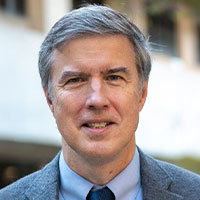 Dispatches
DispatchesJP Leskovich is a rising 3L at the University of Pittsburgh School of Law and JURIST’s News Managing Editor. He filed this dispatch from Phoenix. This is the first of several dispatches he will be filing over the next few days providing exclusive coverage of the Constitutional Convention proceedings as an embedded reporter for JURIST.
110 law and undergraduate students from over 70 universities across the US, including myself, converged on Phoenix, Arizona Friday for the first day of the first-ever student-run US Model Constitutional Convention, hosted by the Center for Constitutional Design at the Arizona State University Sandra Day O’Connor College of Law.
The US Constitution is notably difficult to amend and has not been amended for some time. This poses a problem as our country moves further into the twenty-first century and some people question whether the Constitution is well-suited for modern governance. As Stephanie Lindquist, the Executive Director of the Center for Constitutional Design, told us, “a rigid and sclerotic constitution that cannot adjust to changing circumstances…puts democracy at risk.”
It is for democracy that I am here. We are at a pivotal moment in US history, with the tenor of our politics historically tense and threats to our democratic Republic strengthening every day. Some are abandoning the idea that democracy can deliver results for the people, that democracy can truly represent the will of people, and that democracy can keep up with changing times.
I reject this, and my fellow delegates reject this as well.
We are here to show the country that people from across this vast, diverse, complex nation can still come together, in the interest of “We the People,” and make sure our government reflects everyone’s needs. We are here to show the country that democracy is alive and well, that democracy is dynamic and vibrant, and that it is in fact possible to reach a consensus on constitutional reform in our divided country. What that reform will look like, and whether we will achieve our goal, remains to be seen over the course of today and tomorrow. But I am optimistic.
Yesterday we started in committees of ten to eleven people each to consider proposed amendments. My committee was productive, sending two amendments to the floor of the Convention. One stood out to me: a proposal to give the US territories full voting rights in the US Congress. Although our committee had several traditionally conservative states that may have been inclined to oppose such a proposal, we found common ground in the importance of democracy, in the idea that a country founded on democratic ideals should not and cannot tax people without representation. Over the course of debate, people changed their minds and realized the necessity of fully realizing the promise of American democracy. By the end of the committee session, we had approved the proposal unanimously. Delegates representing Oklahoma, Wyoming, Indiana, Massachusetts, New York, Wisconsin, and more came together to say: democracy is for everyone.
That doesn’t mean we were sitting in a circle singing kumbaya all day. Of the four proposals my committee considered, only two were approved. We voted down a proposal enshrining an legislative veto over executive regulations, as well as a proposal limiting corporate personhood. That latter proposal, limiting corporate personhood, was particularly divisive. Some states, like New York and Massachusetts, argued ardently in favor of limiting corporate personhood to ensure the Constitution’s rights are reserved for natural persons. This was in response to the controversial Citizens United decision that granted corporations free speech rights and opened the floodgates for dark money in politics.
As the delegate representing Wisconsin, I argued that limiting corporate personhood was necessary to combat the pervasive influence of special interests in our politics and allow working families and working people to have a truly representative government. However, delegates representing states like Nebraska, Iowa, and Indiana expressed concerns about the economic consequences and potential government censorship. In the end, the proposal failed in a vote of 5-5-1, showcasing the divide currently gripping the nation.
Today, the full Convention is meeting to consider 20 proposed amendments, two from each of the committees. They cover everything from environmental protection to gerrymandering to equal rights to restorative justice to impeachment to tribal sovereignty and more. The enthusiasm for a better democracy is palpable in every proposal and in the passion of the delegates here. We will debate these proposals today and vote on them tomorrow. Hopefully, we will come together for democracy and show the country that a better system is possible.
In a keynote speech last night, Richard Albert, William Stamps Farish Professor in Law and Director of Constitutional Studies at the University of Texas at Austin, presented us with three questions: Who are we here for? Are we open to persuasion? What will be our legacy? They are critical questions to consider as we seek to build a better future. I hope that our legacy will be recommitting to democracy, and showing the country that young people want to work together to create a modern country that works for everyone.
It’s fitting that we are meeting in Phoenix because like the mythical bird, we hope a new and more just constitutional order will rise from the ashes of division.


